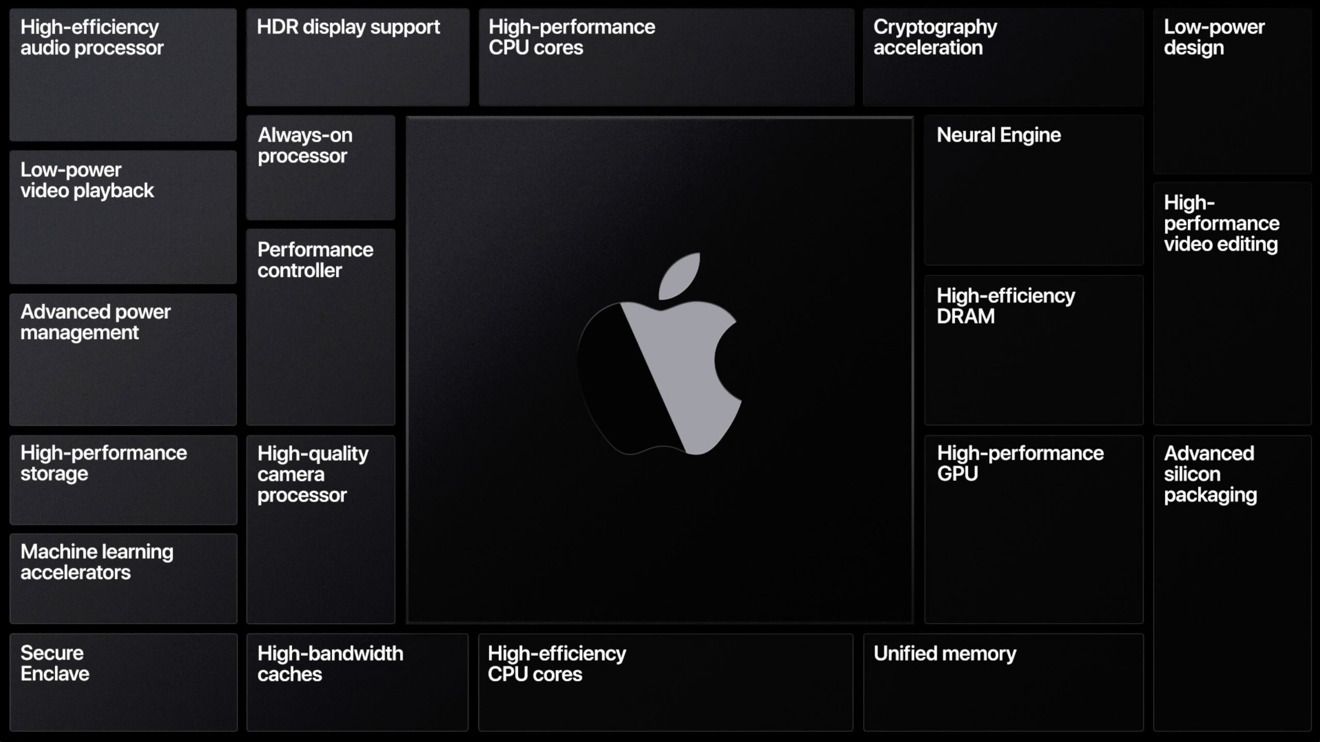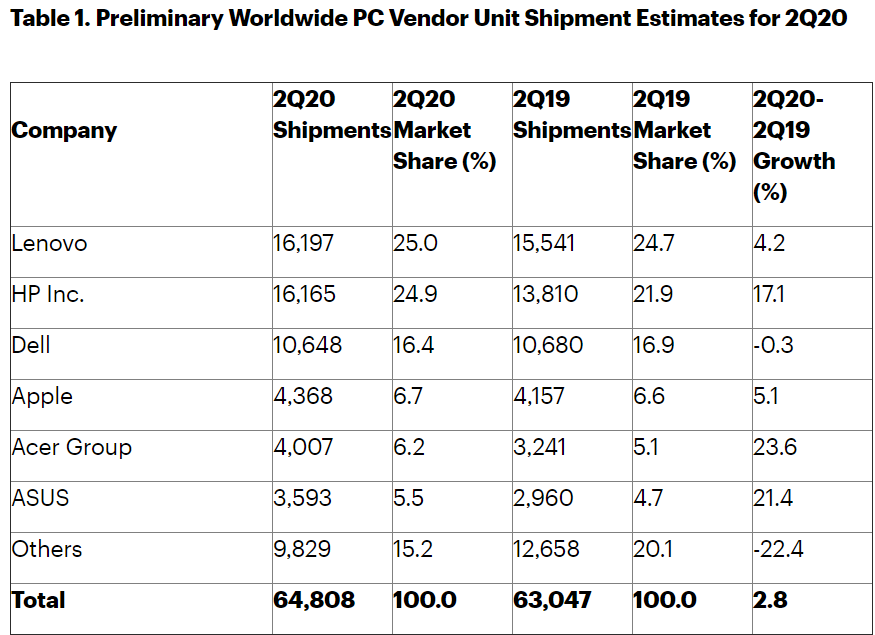Apple Silicon
The recent Apple move to switch away from Intel based CPUs was long before discussed, it was quite frankly just a matter of the right timing.

The recent Apple move to switch away from Intel based CPUs was long before discussed, it was quite frankly just a matter of the right timing.
While it seems that the market share of roughly 12% in the US (7% worldwide) is seemingly not something Intel has to worry about too much, the implications might be something else.

It has been an ongoing discussion that the modularity of PC components has its limits. While it gave birth to an entire industry of hardware enthusiasts and builders, the benefit of creating a unified system far exceeds the benefits of configurations.
Having full control of the product not only provides greater opportunities for deeper integration and better performance but also for a better customer experience.
The other side however, is the discussion about the priorities from Intel itself. With the current roadmap players like Apple don't look to excited. Since the CPU business in itself is also becoming less and less relevant for Intel this move makes even more sense.
Question remains if the current state of the hardware industry remains or if we will see more fully integrated less configurable systems in the wild.
As Jean-Lous Gassée put it:
We’re about to enter an exciting, messy transition. Not only will Apple Silicon make better Macs, it will force Microsoft to polish its Windows on ARM act, both hardware and software. In turn, this will cause PC OEMs to reconsider their allegiance to x86 silicon…and that will have serious consequences for the old Wintel partnership.
The other major player in this is Microsoft, as the WINTEL (Windows / Intel) combination has been the dominant force in the industry for several years. But it’s unclear if Microsoft will stick with Intel on this one.
While their early adaption of ARM was not that great, with the introduction of the Surface and the disaster of not being able to run MS Office natively. Compared to the slick launch of Apple this make them look really stupid, as Apple just showed native versions of Microsoft Office, Adobe Photoshop and others through their Rosetta 2 emulator at great performance.
The most likely path for Microsoft is that they will step up and go back to the drawing board, jumping on the ARM train again not only to support their own products but also to be relevant in the new field.
Which then leaves major PC brands to follow and create ARM based systems for customers.
Specifically, what are Dell, HP, Asus, and others going to do if Apple offers materially better laptops and desktops and Microsoft continues to improve Windows on ARM Surface devices? In order to compete, PC manufacturers will have to follow suit, they’ll “go ARM” because, all defensive rhetoric aside, Apple and Microsoft will have made the x86 architecture feel like what it actually is: old.
When jumping onto Intel, they are not ready yet to give up the cash cow which x86 provides. So they have to figure out a way to stay relevant in this, given their history:
Intel execs know they missed the Smartphone 2.0 revolution because of culture blindness. They couldn’t bear to part with the high margins generated by the x86 cash cow; they couldn’t see that lower margins could be supported by unimaginable volume.
Something they clearly don’t want to repeat, together with the problem that the x86 creates high margins not because of the chip, but because of the Intel/Windows duopoly. Which would lose relevance rather dramatically when more and more players jump the ARM train.
Funny enough, Intel sold its ARM license to Marvell in 2006, something that they will need to re-acquire to start becoming relevant in the new field.
